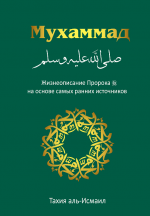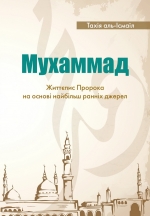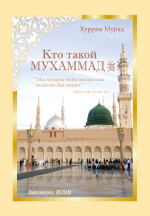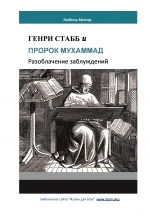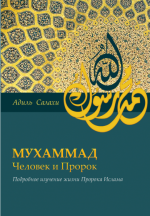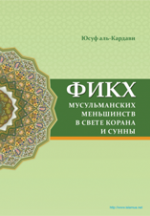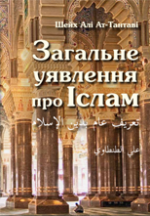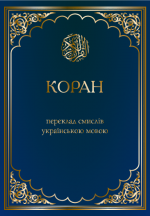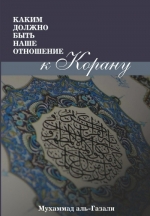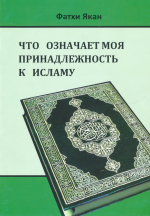Islamic Holidays and Special Dates
Muslims have two major religious holidays each year, which mark the completion of the two major pillars of Islam, which are Fasting in Ramadan and the Hajj. There are several special dates, connected to observation of each of those pillars.
All those dates occur in the lunar based Islamic calendar which is based on the synodic period of the Moon's revolution around the Earth, approximately 29,5 days. The Islamic calendar alternates months of 29 and 30 days (which begin with the new moon). Twelve of these months make up an Islamic year, which is 11 days shorter than the Gregorian year. The Gregorian calendar is based on the orbital period of the Earth's revolution around the Sun, approximately days.
So, the two Islamic religious holidays are:
Eid Al-Fitr (Ramadan-Bayram) is celebrated at the end of Ramadan (a month of fasting during daylight hours), and Muslims may invoke zakat (charity) on the occasion which begins after the new moon sighting for the beginning of Shawwal. The Eid al-Fitr celebration begins with prayers the morning of the 1st of Shawwal, and is followed by breakfast, and often celebratory meals throughout the day.
Eid Al-Adha (Kurban-Bayram) is celebrated on the tenth day of Dhul-Hijjah when Hajj (pilgrimage) takes place, and lasts for four days. Muslims celebrate the "Festival of Sacrifice." It includes a ritual sacrifice of a sheep, cow, camel, or goat, an action meant to commemorate the trials of the Prophet Abraham. The meat is divided in 3 equal parts (both in quantity and quality): among family, friends, and the poor. Muslims are also encouraged to be especially friendly and reach out to other people during this period.
Besides the who religious holidays, there are some other special dates, observed not as feasts, but rather as special occasions for special types of worship.
Ramadan
Each year, many people happily welcome the arrival of the month of fasting, Ramadan, corresponding with the ninth month of the lunar calendar, during which Muslims spend a month in daytime fasting. From dawn to sunset during this month, Muslims fast by denying themselves food, water, smoking and all related sexual activity with their spouses (non-marital sexual activities are forbidden at any time all year round), but people with chronic diseases or unhealthy conditions such as diabetes, and children are exempt from fasting. Travelers, and women who are menstruating or nursing a baby, are exempt from fasting as well during their special situation but are required to fast later.
A person's observance of fasting can be for naught if religiously forbidden acts are made, such as backbiting and deceiving others. This fast is an extremely important aspect of the Muslim faith: in fact, it is one of the Five Pillars of Islam. Fasting is a purifying experience so that Muslims can gain compassion and deepen their faith in Allah. The act of fasting represents the condition experienced by the needy, who although already hungry must also fast for Ramadan.
Laylat al-Qadr
Toward the end of Ramadan, Muslims observe Laylat al-Qadr, variously rendered in English as the Night of Decree, Night of Power, Night of Value, Night of Destiny, or Night of Measures, is in Islamic belief the night when the first verses of the Quran were revealed to the Islamic prophet Muhammad.
It is one of the nights of the last ten days of Ramadan - thus, it can be either 19, 21, 23, 25, 27, or 29 night; but it’s a general belief that it’s most likely to occur during the 27 night. Muslims believe that on this night the blessings and mercy of God are abundant, sins are forgiven, supplications are accepted, and that the annual decree is revealed to the angels who also descend to earth, specially the Angel Gabriel, referred to as "the Spirit", to perform every and any errand decreed by God. Islam holds that God Almighty alone answers our supplications and that He alone receives them and forgives humanity and gives them what they ask for, and that on this particular night Muslims should actively seek God's forgiveness and engage in various acts of worship.
Hajj
Each year during the 12th month of the Islamic calendar, millions of Muslims make an annual pilgrimage to Kaaba, the ‘House of God’, in Mecca, Saudi Arabia, . This pilgrimage is known as the Hajj and is mandatory religious duty for Muslims that must be carried out at least once in their lifetime by all adult Muslims who are physically and financially capable of undertaking the journey, and can support their family during their absence.
The rites of Hajj, which according to Islam go back to the time of Prophet Abraham who re-built Kaaba after it had been first built by Prophet Adam, are performed over five or six days, beginning on the 8th to 12th (or in some cases 13th) of Dhul-Hijjah, the last month of the Islamic calendar. It is one of the five pillars of Islam, alongside Shahadah, Prayer, Zakat (Charity) and Fasting.
Pilgrims can also go to Mecca to perform the rituals at other times of the year. This is sometimes called the "lesser pilgrimage", or ‘Umrah. However, even if they choose to perform the Umrah, they are still obligated to perform the Hajj at some other point in their lifetime if they have the means to do so, because Umrah is not a substitute for Hajj.
Day of Arafat
During the ninth day of the Haj, pilgrims gather at dawn and make their way from Mina to a nearby hillside and plain called Mount Arafah and the Plain of Arafah, to seek God's mercy. It was from this site that Muhammad gave one of his last famous sermons in the final year of his life. Muslims elsewhere fast for the day. Muslims around the world gather at mosques for a solidarity prayer.
There are also dates marked as special by some (but not all) Muslims, such as:
Hijri New Year: 1 Muharram
Hijri New Year is the day that marks the beginning of a new Hijri year, and is the day on which the year count is incremented. The first day of the year is observed on the first day of Muharram, the first month in the Islamic calendar. The epoch (reference date) of the Islamic era was set as 622 Common Era (CE), the year of the emigration of Muhammad and his followers from Mecca to Medina, known as the Hijra. All religious duties, such as prayer, fasting in the month of Ramadan, and pilgrimage, and the dates of significant events, such as celebration of holy nights and festivals, are calculated according to the Islamic calendar.
Ashura: 10 Muharram
Ashura is the tenth day of Muḥarram, the first month in the Islamic calendar. In Sunni Islam, Ashura also marks the day that Moses and the Israelites were saved from Pharaoh by God creating a path in the Sea. Other commemorations include Noah leaving the Ark and Muhammad's arrival in Medina.
Mawlid an-Nabi: 12 Rabia' Awal
Mawlid al-Nabi is the observance of the birthday of Islamic prophet Muhammad which is commemorated in Rabi' al-awwal, the third month in the Islamic calendar. 12th Rabi' al-awwal is the accepted date among most of the Sunni scholars.
The history of this celebration goes back to the early days of Islam when some of the Tabi‘un began to hold sessions in which poetry and songs composed to honour Muhammad were recited and sung to the crowds.
Most denominations of Islam approve of the commemoration of Muhammad's birthday. Mawlid is recognized as a national holiday in most of the Muslim-majority countries of the world except Saudi Arabia and Qatar. Muslims use this date as a good opportunity to remind of the high moral qualities of Prophet Muhammad (peace be upon him) and encourage to follow his footprints.
Isra' wal-Mi'raj: 27 Rajab
The Isra and Mi'raj are the two parts of a Night Journey that, according to Islam, Muhammad took during a single night around the year 621 CE. It has been described as both a physical and spiritual journey. A brief sketch of the story is in surah al-Isra of the Quran, and other details come from the hadith. In the Isra’, Muhammad traveled on the steed Buraq to "the farthest mosque". Traditionally, later Muslims identified the mosque as a location in the physical world, the Al-Aqsa Mosque in Jerusalem. At the mosque, Muhammad led other prophets in prayer. He then ascended to the heavens in the Mi‘raj.
That was for the religious holidays and dates. Noteworthy, different Muslim peoples have their own national holidays and special (or tragic) dates that they observe each year.
- 342 reads







